How do I attract an audience? How do I make them trust and buy from me? What will make my marketing initiatives succeed instead of fail? These are questions that are plaguing a lot of business owners. And the answers to those questions are in this episode!
Today’s guest, Tim Reid, is a marketing expert who believes that giving valuable and helpful content will yield an unimaginable return to your business. Tim is Australia’s most practical business marketing keynote speaker, traveling the world showing business owners, marketers and their employees how to embrace the modern world of marketing by gaining success and increasing profits without spending a fortune. He’s also an engaging and entertaining emcee, having emceed the Telstra Business Awards around Australia, and is the emcee for the annual Australian Podcast Awards.
In this episode, Tim and I dig into the concept of “information wants to be free.” Tim unpacks some core concepts from his book, The Boomerang Effect. He explains the premise of helpful marketing and how this kind of marketing attracts more audiences. In addition, we also discuss marketing as a hobby, limiting beliefs, and much more.
Without any further ado, let’s do this!
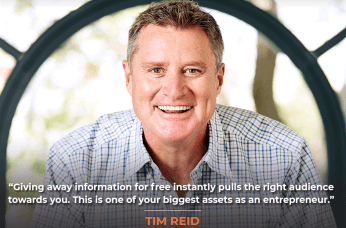
In This Episode
- [00:20] – The episode features Tim Reid, one of Australia’s most practical business marketing keynote speakers.
- [02:13] – Tim gives his opinion on the concept of information wanting to be free. He discusses the two types of marketing as well.
- [05:19] – Tim talks about the boomerang effect of helpful marketing and the two aspects of marketing in general.
- [09:02] – Stephan shares something about Akashic Records, intuition, and his spiritual awakening.
- [12:54] – How does Tim explain the concept of providing results in advance in the context of marketing?
- [16:04] – Stephan shares a strategy he practices in the marketing world, particularly in SEO, as his subject of expertise.
- [20:25] – Tim describes the reason behind the title of his book, The Boomerang Effect and how it paved the way for him to create a podcast and get an award for the best marketing and business podcast at the Australian Podcast Awards.
- [26:06] – Why is it important for business owners and entrepreneurs to treat marketing as a hobby?
- [31:12] – Tim explains the limiting beliefs in the modern marketing world.
- [37:38] – Tim expounds on the importance of looking after yourself and taking care of your well-being after Stephan asks him to give the listeners and viewers wisdom.
- [40:53] – To learn more about how marketing can be a hobby, visit Tim’s website and podcast, The Small Business Big Marketing.
Tim, it’s so wonderful to have you on the show.
Stephan, what a wonderful introduction. I couldn’t have written that better myself.
Here’s something that just popped in my mind. I’m sure you’ve probably heard this expression before, but I just want to start with this because why not? Sometimes things just pop in your consciousness and I figure that’s not random.
I’m nervous.
Okay, so here’s the expression. Information wants to be free. Have you heard of it?
I think I’ve heard those words. I’ve heard the sentiment before, for sure.
Stewart Brand is the one who uttered it back in the 80s. I would love to hear your take on this concept of information wanting to be free? What do you feel about that?
I think it’s a really interesting concept because I talk a lot about the concept of helpful marketing, which is very simply solving the problems that your prospects and customers have so that they can make a more informed purchase decision. The way you get your helpful marketing out there, no matter what you are, whether you’re a chiropractor, or a lawyer, or an accountant, or a builder is through content marketing. Free things like blogs, podcasts, YouTube channels, social media, ebooks, and infographics.
I see goodness coming from providing free information.
I see goodness coming from providing free information. Now, that doesn’t mean that if you are an accountant, you share your step by step process that you use to complete a tax return, or if you’re an architect you don’t share your IP as to how you step by step design a home, but there’s a lot of information that you can share for free that will pull an audience towards you making them familiar with you, making them trust you.
All of a sudden, when they buy into you, they become less price sensitive. They trust you and they look to you for more information and they could very likely become a client. I’m surprised at how many businesses still don’t share good quality free information. It’s easy to share information and many business owners would argue they share information all the time in their ads.
There are two types of marketing: push marketing and pull marketing, neither right or wrong, they just are. The push marketing is the buy from me, buy now, closing soon, end of financial year sale, limited amount of space, limited amount of time in the media that you’ve chosen so you cut to the chase with your message and that’s paid. That’s not free marketing.
If you actually pull people towards you by sharing good quality, helpful information, then you’re going to build a really strong personal brand. Just to finish that Stephan, because it’s a really interesting concept. We could talk for 24 hours and you could run a whole conference about it.
You could write a book about it in fact. There is a book I just discovered. I was Googling about this phrase, who is credited for it? Somebody I was interviewing gave me the misinformation that it was Kevin Kelly. It was not Kevin Kelly who said that it was Stewart Brand.
There are two types of marketing: push marketing and pull marketing.
The book on information wants to be free was written by somebody else. This is funny, I just discovered right now, while googling it, that the book by Cory Doctorow, Information Doesn’t Want to Be Free. That’s hilarious.
By now it’s a debate.
The definitive book on information wants to be free, something like that. Anyway, I’ll find the other one. There are apparently two books on this topic.
Yeah, that’s right. All three because it’s not so much about free. It’s not arguing the case. I suppose it is arguing the case for free information. The boomerang effect is why being helpful in your marketing returns you more customers and makes you more money. That boomerang effect can happen when you are incredibly helpful. I just don’t think enough business owners are truly helpful in their marketing. They don’t think about that aspect of marketing.
Marketing is a funny thing as you know, Stephan. There are two aspects of marketing, the message and the medium. It’s quite easy to get the medium right. The medium could be social media, radio advertising, networking, and sponsorship, but the message is the really hard part.
That push versus pull aspect of do I have just sales messages or do I create helpful messages? I was going to say just at the end of that, Jamie Oliver. Being in America, are you aware of Jamie Oliver, the English celebrity?
Yeah, The Naked Chef.
The Naked Chef, yeah. It was his first program. He’s my marketing hero and talks about free information. It’s a great example of you can watch Jamie’s show on TV for free. It doesn’t make you a celebrity chef, but you know what it does? It makes you want more of him.
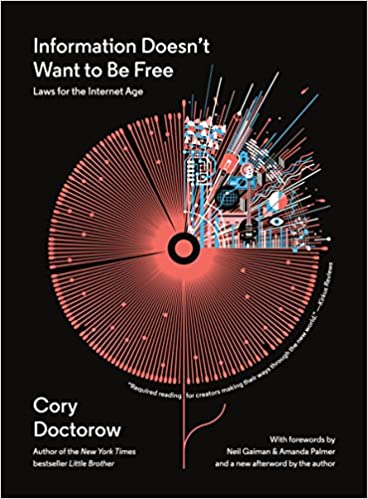
It makes you want to buy his book, go to his restaurants, make those purchases on his app, and that’s how it works. Give free information, be helpful, develop trust, and people will want more of you. You’ll get more customers, you’ll get more warm leads. Life is good.
Yeah, I did find the other, it’s not actually a book. It’s a really long, medium article by Steve Levy and it’s called The Definitive Story of Information Wants to be Free.
Thank you. It raises an interesting question, that the whole concept of information demands to be free or doesn’t demand to be free, because people so often and I just completely forgot my train of thought. I said to you at the start, I’m coming down with COVID I think, and I’m waiting for my test results. A little bit of brain fog is happening here. I’ll let you continue.
Yeah, well, thank you. I’m so grateful that you’re doing this. I did offer to be rescheduled, just for the record. Anyway, here’s something I just recently learned. This is really out there. This is really woo, woo-woo. There’s something called the Akashic Records and that’s where every thought, word, and deed across all lifetimes is stored for all of us.
You can access your Akashic Records through getting a reading from an Akashic Records reader. They connect with your guides, angels, and the record keepers. I know that sounds out there, but here’s where this ties in to what we were just talking about.
I recently learned that you can not only open your own records—if you know how to do it or ask your reader to do it for you—but you can also open the records of a work of art, like a book.
The book that you are working on or that you are thinking of writing is in the Akashic Records and you can access the Akashic Records and you can ask about the book. Ask the record keepers things that relate to the book, like what’s the most impactful thing that’s going to come out of this book if I write it and just whatever questions you want to ask.
Giving away information for free instantly pulls the right audience towards you. This is one of your biggest assets as an entrepreneur. Share on XPretty much anything is fair game when you’re dealing with Akashic Records except if you’re trying to find out what your death date is, they’re not going to tell you that. Anyway, I know it sounds really woo-woo and really out there, but that’s what came to my mind.
What made you think of that? It’s interesting. I think we’re going to change the name of the show to the ‘Spiritual Marketing Show,’ but I’m in full support of that. What made you bring the Akashic Records up?
There’s this thing called intuition and I used to think it was just your gut feel or kind of gut instinct about stuff like your subconscious weighing in. I recently learned through a lot of spiritual studies last year and a spiritual awakening that it is your higher self, your spirit guides, angels, and holy spirit all whispering into your consciousness.
When you get this intuitive feeling about something and it has three aspects to it, one is it comes in unexpected, just kind of out there. It wasn’t a logical next thing for you to think about. It just came out of nowhere, which is how Akashic Records is—it came out of nowhere.

Number two is it’s emotionally charged neutral. There’s no excitement, no anxiety, no fear, nothing. It’s just simple, it is. Then the third piece is that it just stays put, doesn’t jump to the next thought, and then the next thought, and the next thought like oh, yeah, we should totally talk about this. It’s just kind of sitting there.
I don’t know if you’re into that kind of thing or not, but I was not. I was agnostic up until age 42 and then I had a spiritual awakening in India on a Tony Robbins Platinum Partnership. Whole story is over on my other podcast on Get Yourself Optimized, which is a spirituality, biohacking, and personal development podcast. The short of it is that I would have thought this was all gunk, bunk, or nonsense, woo-ha, whatever, until I had my own awakening.
I don’t think it’s nonsense and I find myself on my podcast on, The Small Business Big Marketing show, not often but when I do talk woo-woo stuff or when I have a guest talk woo-woo stuff, I find myself not so much apologizing, but just warning listeners. I don’t like that because I’m all for it. Business is serious. Marketing should be accountable, measurable, and all that, but there are some aspects to everything that are—softer than not even the word—just a little bit less tangible, and we need to trust them and not question them.

That is just as relevant to building a personal brand, or creating a marketing message, or dealing with a customer, or whatever it may be. I think where the world’s headed and we’re getting quite heavy here—I think it’s great. I apologize again—that we need to apply more attention.
I was just saying we should be paying more attention to that side of ourselves as business owners, as marketers. I think, again, playing back into that message versus medium, it’s really easy to get the medium right. It can be determined by budget, it can be determined by what you’re comfortable putting yourself out there on, but what you’re going to say is always the hard part. What you’re talking about plays into that.
Yeah, totally. To circle back to the information wants to be a free concept, this ties in, I think, quite well in addition. I learned this from Frank Kern years and years and years ago, probably 2010 or so, and that is to provide results in advance. For example, if you’re teaching an online course on how to play the guitar, give them how to play the F chord for free. Have you heard that concept before, results in advance?
Again, not in those words, but it makes absolute sense. Why wouldn’t you want to be able to do that? What you’re saying is—we are being so literal here—like for example, if you’re a guitar academy that your lead magnet should be here’s how to play the F chord, go for gold, sign up, give us your email address and we’ll send you the video—the worksheets, the PDFs, everything you need to play the F chord for free.
You do that and all of a sudden you’re going to really like us because we’ve given you something of high value for free. It’s that classic marketing equation of high perceived value to the prospect at a very low cost to the business owner. That gap in the middle is that beautiful marketing magic. You’ve sort of covered that off. If you’re the business owner or the person actually doing that guitar lesson, they’ll have seen you, they’ll have heard you, they’ll have made a judgment about you, good, bad, or indifferent.
When you share good quality and helpful information, you get to build a strong personal brand that people put their trust in right away. Share on XI did this wonderful episode a few years ago on the Small Business Big Marketing Show where I brought in my favorite interviewer in Australia. His name is Richard Stubbs. He was on ABC Radio for many years and I considered him to be one of the great interviewers. I was going to say Andrew Denton‘s of the world, but the Michael Parkinson‘s of the world. I got Richard in.
It was at a time when there were more and more people starting to podcast and YouTube and interview other people and I thought we all need to be better interviewers. I invited Richard into the studio and said “Richard, your job in this interview is I’m going to interview you about your story and how you’re a great interviewer, but I want you to constructively give me feedback in real time on what I’m getting wrong.”
It was all about me, that episode. However, one thing he shared which stayed with me to this day, is that you should always lead with your best stuff, always. If we’ve got an hour interview, then hopefully we’ve led with our best stuff. People go well, that’s your best stuff then. Can’t wait for the next half an hour.

I think what that means is that, going back to the guitar lesson thing, if learning the F sharp chord is the biggest question, the biggest problem that your prospects have, and you lead with solving that, then surely you’re going to be setting yourself up to do more business with more people.
Yeah, and a nice bonus that happens, this was according to Frank Kern, who said that when somebody does sign up for your full program, such as how to play the guitar, the whole thing, they associate just mentally in the back of their mind the value of the entire course including what you gave them for free.
Yes.
They don’t feel cheated. You gave away your best stuff for free and they’re setting that aside and saying well, yeah, I got that for free. Now they’re associating the whole enchilada with the payment that they made and they feel that they got really good ROI out of that. It’s pretty cool.
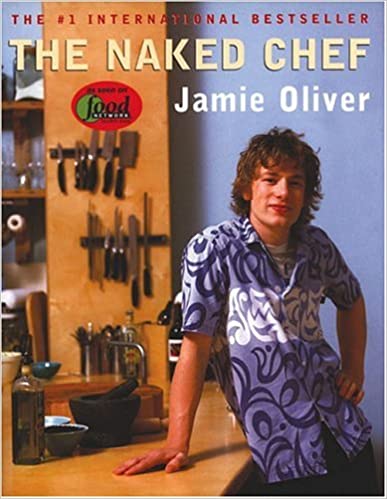
It’s like Amazon. You go to Amazon to buy a book and you get the first however many pages to flick through for free, then you buy it, and then you get the whole experience. Yeah, it works.
It’s great, yeah. That’s awesome. Now, here’s a strategy that I thought was really clever and I’ve implemented it to really good effect. I forget where I learned it from, who I learned it from, but the concept gets somebody really big in your industry to interview you on your subject of expertise.
For example, whoever shared this on stage, in an article, or whatever gave the example Brian Tracy. Get Brian Tracy to interview you and if it costs money to hire him to do the interview, it’s totally worth it.
I had Jay Abraham interview me about SEO, and I have had James Schramko interview me about SEO for my podcast. Sure, they’ve used those episodes on their podcast as well, but that wasn’t the impetus for me to do it. I wanted to have people I really rate highly in the marketing world to interview me about my subject of greatest expertise, SEO.
I’m curious, was that a motivation for you to work with Richard Stubbs? You wanted somebody who was a great kind of industry leader? I don’t know who Richard Stubbs is.
No, that’s okay. It would be a stretch to say he’s the Howard Stern of Australian radio. He’s not, but I put him up there as that. He doesn’t stir the pot like Howard Stern does, but he’s got that profile, or used to. He’s no longer on the radio. I didn’t have that in mind. It was a guy who I admired hugely and as a podcaster, you’ve got to be opportunistic, Stephan.
Marketing requires a lot of humanity. It’s about connecting with the people you care about the most and helping them improve their lives. Share on XI happened to be in a radio studio and Richard happened to walk past in the corridor. I’m one of those guys where I don’t really like interrupting public figures, but at the same time I have to make a value judgment as to hey, I don’t walk past this guy every day. We both acknowledged each other. Do I turn around? Do I make a fool of myself? What if he says no?
Anyway, it all worked really well. I was being opportunistic, but I love that idea. In fact, I’ve never implemented it. I’ve done, as of today, 590 episodes of the Small Business Big Marketing Podcast and I’ve never been interviewed. It’s an interesting idea. It seems like why would anyone want to hear? But I know that that’s not the case. I try to share my knowledge.
My show, whilst it’s an interview format like yours, I don’t like just back and forth questioning. I want it to be more of a discussion and that’s taken some time. I’ve matured into that over 13 years of doing the podcast. Originally, it was a Q&A. Hello, Mr. Business Owner, hello, Ms. Business Owner, here’s a question. Thank you for your answer. Here’s the next question.
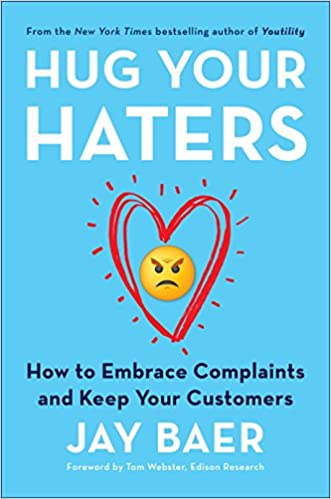
Over the years, I’ve learned to buy into the conversation more. I’ve acknowledged that I do know a thing or two about marketing. I guess with maturity and age, you find the courage to question your guests if they say something. Joe Rogan, love him or hate him, he’s the master of it. He will not let anyone get away with any statement without fact checking it and he does it in a pretty nice kind of way.
I like that and I like the more conversational format. I like where we’ve gone already with a little diversion down a spiritual pathway, we’re back, and it’s good. I think it makes for more interesting listening
It does. It for sure does. This will throw you for a loop, to tie back into the spiritual thing, what if Richard Stubbs walking past you in the hallway was preordained? That was meant to be.
I’m big on that. There are no coincidences.
Exactly. Super cool. I would love to hear why you named your book The Boomerang Effect. I love Boomerangs and I know you’re from Australia, but what’s the meaning of that?
It wasn’t an Aussie thing. It was actually a bloody hard book to name and I kept on having the premise that if you read this book and you implement its findings, it will return you more customers. Boomerangs return, they come back to you. It was just playing on the word return.
It’s called an effect because what I really really love about this modern world of marketing, and I call it helpful marketing. In my lexicon, it’s called helpful marketing. To the greater public, it’s just called content marketing. However, if content marketing is that broad, helpful marketing narrows down because the content you’re sharing is purely helpful, resulting in an effect. The effect you get from implementing helpful marketing may very well be different to the effect that I get.
Helpful marketing narrows down because the content you’re sharing is purely helpful, resulting in an effect.
My Boomerang Effect started when I started the Small Business Big Marketing Podcast 13 years ago. I was sharing my marketing knowledge and I was going out with this pure intention of making the world of marketing for small business owners a little bit easier, a little bit more fun, and something that they should invest time and money into. In fact, I want it to become a hobby.
As a result of doing that, it actually created a really popular podcast. It won the best marketing and business podcast in Australia at the Australian Podcast Awards, at which I happened to be the emcee on the night, which was very embarrassing and looked very dodgy, but I assure you. It launched a speaking career. I never intended that.
One day, seven years ago, I got a phone call from the speakers bureau—I don’t know what a speakers bureau is—they say, we have a client who listens to your podcast and they want you to travel around Australia. They’re an insurance company. They want you to travel around Australia talking to their insurance brokers.
Wow, that would be amazing. I’ll do that. It’s given me media opportunities. It’s created a network that, if I go through my phone, the people that I’m lucky enough to have interviewed and have met along the way, it’s allowed me to be a private equity investor in a couple of amazing startups.
This boomerang effect through simply creating helpful marketing. It’s a long way of answering why the book is called that, but it’s important to understand that if you embark on this helpful marketing career and just be helpful in life, forget marketing.
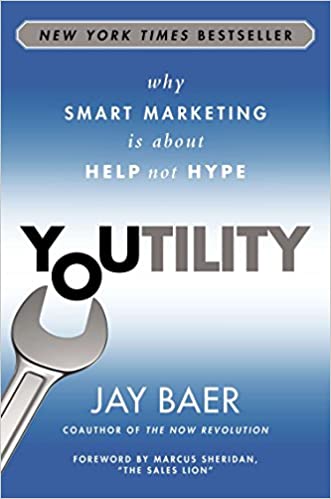
I’ll tell you the master of all this, and I’ve talked about Jamie Oliver, Stephan, but I was lucky enough to have Jay Baer write a little testimonial at the top of the book. He says ironically, the less you try to sell, the more you actually sell. This outstanding playbook is for any business person wanting to outflank their competition through the power of helpful marketing and that’s Jay Baer, who wrote a fantastic book years ago called Youtility, which is really the first book on helpful marketing.
He also wrote Hug Your Haters.
I interviewed him about that. A fantastic book. Absolutely fantastic.
I interviewed him about it too on this show.
He’s a good guy. What I like about Jay is his ability to package concepts up in a really engaging and entertaining way. It’s very cool.
He’s a great speaker, too. Really seasoned, he is. When you’re talking about helpful marketing, what just comes to me about that is it’s really good karma. What you give is what you get back in 10x. If it’s good stuff you’re giving out there in the world, you’re going to get it back ten times.
What I was going to say—and you just prompted that. My COVID brain is cleared—is that in my keynote, as I’m about to introduce the concept of helpful marketing, I say there’s one word I want you to remember from our time together today. Let me introduce you to the concept of helpful. Let me introduce you to the concept of helpful marketing. Then what I ask my audience to do is put aside the concept of business or marketing and just explore the concept of being helpful at a human level.
Reflect on the last time you were helped, and reflect on the last time you were helpful; it feels really good.
Reflect on the last time you were helped, and reflect on the last time you were helpful; it feels really good. It actually releases dopamine into the bloodstream, the feelgood drug. We’re already off to a really good start. Now just apply that to your marketing, to the way you go about your business, and you’re setting yourself up for some level of success.
I think it must also release oxytocin, because that’s where you feel really loved. When you give somebody a long hug, that releases oxytocin.
Yes.
Dopamine is good, but oxytocin is even better.
That’s right. I make a point of giving my 22 and 24-year-old sons a 20 second hug every time I see them because that’s the amount of time that is required for that to be exchanged. They’re like dad, enough. I’m like nope, 19 seconds, 20. Bad luck.
Awkward, especially at that age. Even worse when they’re teenagers. They’re like hey, dad, don’t even hug me. Pretend you don’t know me.
That’s right. I’ve been known to chase them.
That’s funny. Now, there’s something I wanted to talk to you about that I was intrigued by. We were chatting before the interview, before the record button was going, and that you mentioned treating marketing like it’s a hobby. I’d love to hear more about that.
My people are small business owners. They’re the smaller end of town. They’re trying to build empires. When I do a keynote, on one particular keynote, I’m introduced by the emcee, and the first thing I do before I walk on stage properly is get a show of hands to ask who’s really nailing their marketing? Then hardly any hands go up. Who’s finding marketing really frustrating? Then a lot of hands go up.
There is just this overarching view on marketing that it’s going to cost a whole lot of dough.
What I’ve found is there is just this overarching view on marketing that it’s going to cost a whole lot of dough, it’s going to be very complicated, and it’s going to take up a whole lot of time. I never see the return on investment that other people talk about getting. There’s just so many limiting beliefs that are holding business owners back from creating marketing that actually works and helps them build a business, a brand generates more sales, retains, and attracts more great clients and all that kind of stuff.
There’s that side of it, and then on the other side of it, I’ve interviewed 590 successful business owners on the Small Business Big Marketing podcast. Whilst none of them have mentioned the word hobby, they talk about marketing as if it were a hobby. When something is a hobby, you find time for it. You find the resources, the money, the energy. You put it in your diary. You can’t wait for the next time that chunk of time comes up.
You and I both know that marketing is an investment. It’s an asset. It shouldn’t be deemed as an expense. Yes, when it comes to tax time, deemed it as an expense, but marketing should be a hobby. If we can reset people’s mindsets, business owners’ mindsets to the fact that there’s a lot of stuff in business that’s actually really boring, taxation, cash flow, accounting, finance, HR, real estate. All that stuff out there that kind of has to be done as does marketing.
Maybe I’m being biased here, but marketing is one of the more fun things you can do in business. That’s why I talk about marketing and my wish for all business owners out there is that marketing does become a hobby for them.
What a great distinction. I would always think about turning marketing from a cost center to a profit center, if it isn’t already for my own company, for my clients’ companies, et cetera. You had a really nice distinction to that, that it’s like you’re sparking joy in the process, too. It’s not just making it profitable, but it’s making it joyful.
My wish for all business owners out there is that marketing does become a hobby for them.
Absolutely, and why not? These are unusual words for some business owners to hear. There’ll be some who are listening now that are going these guys are a bit wacko. This is serious. I get the seriousness of business. I get the seriousness of business so much that I’m trying to sort of add a little bit of joy, a little bit of fun, a little bit of, dare I say, entertainment to it. None of us have to be stand up comedians. I’m not asking that. I’m just saying hey, listen, there is some fun to be had. Marketing can enable that.
One of the definitions I heard of marketing, Stephan, is that it’s what you do when you can’t go see somebody. If you kind of think about that, in an ideal world, every business owner would get up out of their office, out of their place of work, go, and visit one on one all those people who have the ability to do business with you.
That is an ideal world. It ain’t going to happen. We don’t have the time or the wherewithal to do that unless we’re operating in a very small niche of which there are five prospects and we get to know them deeply. It’s very rare.
If marketing is what you do when you can’t go and see someone, that means create marketing messages and create content and be helpful at a level that is very conversational, very human, and that should be enjoyable to create.
Yeah, for sure. By the way, that concept of sparking joy, I didn’t make that up. That comes from, have you ever heard of the book the Life-Changing Magic Of Tidying Up? It’s by Marie Kondo.
Marketing is what you do when you can’t go see somebody.
I have.
That’s the criterion for determining if you’re going to keep the item or not. You’re going through the books on your bookshelf. You’re going through the clothes in your wardrobe. You’re going through the knick knacks in your pantry, in the kitchen, and living room. Does it spark joy? Nope. Goodwill?
It’s a good criteria.
Yeah. Let’s talk about limiting beliefs. What are some of the limiting beliefs of our typical business owner or marketer and how do we get past them?
You’d hope from my point of view and those limiting beliefs that I mentioned, when we’re talking about the modern world of marketing, I know that lack of time, lack of money, and lack of knowledge are three limiting beliefs that almost every business owner has when it comes to looking at their marketing. I think some of them are just really happy. They almost use it as an excuse.
I did a couple of webinars yesterday with a recent guest around customer attraction. What this fellow had to offer actually did sound too good to be true and I’m very skeptical on behalf of my listeners, I won’t put anything out there that if it sounds too good to be true, it is too good to be true.
What he had was just something incredibly simple. It was a travel based incentive program. Free holidays, basically. He did all the research over many years to find out what the best incentive was from a marketing perspective.
Leave the limiting beliefs and skepticism aside. If you still carry them like the burden that they are, that’s your choice.
In the lead up to that webinar, I was getting emails from people saying, this sounds too good to be true and I’m feeling skeptical about it. That’s cool, be skeptical, but join me on the webinar and just leave those limiting beliefs, leave that skepticism aside for the time that we’re together.
If at the end of the hour webinar you still need to pick up those limiting beliefs and carry them like the burden that they are, that’s your choice. Know that we all have limiting beliefs around everything. Again, we had the word marketing to the end of this conversation, but we have limiting beliefs around all sorts of things that we do and they hold us back.
I think one of the things that is becoming clear in our conversation too, Stephan, is that there’s that rational side of marketing, but also that we need to acknowledge that marketing requires a lot of humanity because at the end of the day we are having conversations with people that we want to do business with. Acknowledge that they probably have got limiting beliefs, show empathy.
I was the marketing manager for a travel company in Australia called Flight Centre. They’re actually a global travel company, but pretty big and started in Australia. And he used to say to the people in the stores, you know, often young people 18–25 year old travel consultants, acknowledge and have empathy.
Don’t have a limiting belief that you’re just a travel consultant. You’ve got people coming into the store to book travel, to book a holiday, to book an around the world extravaganza. They’re excited, empathize with them, know that this is a great time, that they’re about to do something amazing with you.
Your limiting belief is that you’re just a travel consultant and what can you do? Hey, change that. That’s your actual job, you’re not a travel consultant, you’re here to make someone’s day. Take that mindset off, lose the limiting belief.
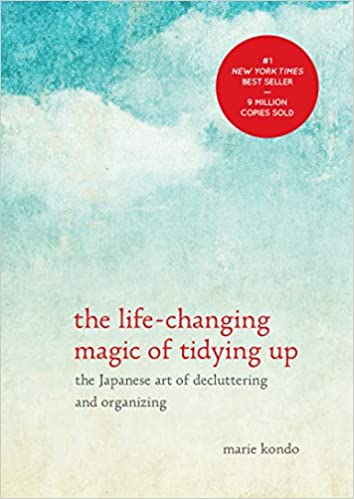
Yeah, that’s great and what you said about the skeptic. I think of skeptics as just one breath away from or one kind of step away from being a cynic. Who wants to be a cynic?
Yes.
Who wants to be an old crank?
No one.
Some of the limiting beliefs I can think of would be that business is a zero-sum game. It’s a dog-eat-dog world where there are fierce competitors who are trying to rip you off or put you out of business. On the other hand, there’s really empowering beliefs like your customers or your assigned group. I learned this from my Akashic Records guide actually, circling back to what we talked about earlier in the conversation and you’re here because this is your assigned group.
What does she mean by that? Your customers? Say that again, what does it mean?
Your customers are your assigned group. These are your people that you have been assigned to work with, to change their lives, to change their businesses, and vice versa, or to experience some sort of growth lesson either for them, or you, or both. None of this is random.
Nothing. It’s a pretty big concept to understand. If you’re not that way inclined, then hearing that just sounds like mumbo jumbo, but the only way to believe it is to experience it. We could ask why we come into each other’s lives through this podcast. I don’t know the answer to that yet. There will be a reason.
Lack of time, lack of money, and lack of knowledge are three limiting beliefs that almost every business owner has when it comes to looking at their marketing. Share on XThere is a fellow who I did the webinars with last night who came into my life about three months ago out of the blue, wasn’t expecting him, had heard of him because he’s a speaker circle as am I, but a bit of an older guy. I ignored his first email, I will say. He was good enough to come back with a second email and I thought, okay. I get a lot of emails that seem that they weren’t written just for me and I can smell that. We can all smell that.
These were written just for me and he had done his research. He did acknowledge a couple of things that I was doing that he thought he could fit into. Anyway, long story short, I did interview him. I subsequently have done a couple of webinars with him and they were very successful webinars. It’s very clear as to why he’s come into my business life. I think it’s really good to be able to have that radar on, it’s just a really good thing. Otherwise you just say everything’s random.
Was that guy that reached out to you, is it Tom Poland, by chance?
No. That’s interesting you should say that, he has. It’s funny you mentioned James Schramko and Tom Poland. I kid you not, I’m sitting in my home office. Tom lives about 800 meters that way and James lives two kilometers that way. Incredible.

What are the odds? Again, nothing’s random.
Nothing’s random.
Good confirmation. That’s for one thing. That’s awesome. I know we got to wrap, but if you could share one last nugget of wisdom for our listener and viewer, something that maybe they haven’t heard before or is not common sense, because common sense isn’t that common. What would it be?
That’s a very big question, Stephan. Given this conversation has gone in many directions, which I’ve absolutely loved and enjoyed, it’s not going to be directly related to marketing, but it will help you with marketing, and that is to look after yourself. I’m middle aged, I’m 54. I see a lot of business owners. I see them just as a consumer walking along the high street. I see hundreds of them at conferences that I speak at and I see a lot of ones that are struggling, not just necessarily because of COVID. That’s had a huge impact, but not enough business owners are looking after themselves.
The boomerang effect starts by being helpful in your marketing because it returns you more customers and makes you more money. Share on XI’m sort of developing a deep interest in the well-being—the physical, spiritual, mental wellbeing of middle aged male business owners. That’s quite specific, but I’m one of those guys. I kind of figure I can maybe be a little bit of a beacon around that, not that I’m the healthiest bloke guy around, says as he battles what I think is COVID.
Look after yourself. Look up and smell the roses. Celebrate the small win. I don’t know about you, whether you ever worked in corporate, but I worked in corporate for many years and there was always a bloody celebration, whether it was a birthday cake for someone’s birthday, or we won a new bit of business, or someone did something awesome for someone. There were celebrations.
As small business owners, we don’t do that and we should, because we’re amazing. The small business community takes massive risks. We’re trying to create something for ourselves, our family, our friends, and it’s not always easy. You’re going to have much greater success if you get up and smell the roses.
The idea of just looking after yourself a bit more is going to have a direct impact on what marketing you create.
What does that mean? It means probably eating well and all the normal stuff. Maybe it means picking up meditation, but it also means just taking a half day and going and walking along the beach, or a half day planning day with some trusted advisers. The idea of just looking after yourself a bit more is going to have a direct impact on what marketing you create, how you treat that next customer, how you handle the next difficult conversation, et cetera. There you go. Put a bow on it.
That’s great. That’s a great way to end this. As you’re talking about probably having COVID, I’m battling something myself I don’t believe is COVID.
Healthy bunch.
Yeah, it’s a nasty cough and I’ve had it for a week now, so I’m definitely ready to get rid of it. What was the expression, I don’t remember who I heard it from other than from Joe Polish. He likes to say it, but I’ve heard it before. Anyways, it’s something to this effect, he who has his health has a thousand wishes. He who doesn’t, has only one.
Stay alive.
Yeah, just get healthy to have their health back. Great advice, I loved the conversation. I’m excited to hear what the feedback is on this episode.
Yeah, me too.
Feel better and get well soon. For our listener, make somebody’s day.
Thanks, Stephan. Thanks a lot for having me. I really appreciate it.
Yeah, you bet and thank you. We’ll catch you listeners on the next episode. I’m your host, Stephan Spencer, signing off.
Important Links
Connect with Tim Reid
Books
Businesses/Organizations
People
Previous Marketing Speak Episodes
Previous Get Yourself Optimized Episodes
Your Checklist of Actions to Take










About Tim Reid
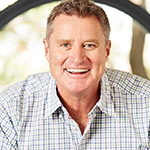 Tim Reid is Australia’s most practical business marketing keynote speaker, travelling the world showing business owners, marketers and their employees how to embrace the modern world of marketing – gaining success and increasing profits, without spending a fortune. He’s also an engaging and entertaining emcee, having emceed the Telstra Business Awards around Australia, and is the emcee for the annual Australian Podcast Awards.
Tim Reid is Australia’s most practical business marketing keynote speaker, travelling the world showing business owners, marketers and their employees how to embrace the modern world of marketing – gaining success and increasing profits, without spending a fortune. He’s also an engaging and entertaining emcee, having emceed the Telstra Business Awards around Australia, and is the emcee for the annual Australian Podcast Awards.







Leave a Reply